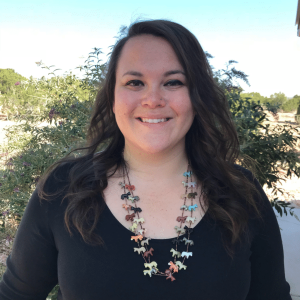Contact
Ending the HIV epidemic in rural Oklahoma (e-HERO)

The goal of the yearlong e-HERO project, funded for almost $750,000, is to increase HIV and syphilis testing among sexual minority men and American Indian men in rural Oklahoma and link them to medical care and psychological services. They also hope to increase condom use and promote pre-exposure prophylaxis, or PrEP, uptake in Oklahoma, a state that is an Ending the HIV Epidemic initiative priority state through the Centers for Disease Control and Prevention.
In 2019, the U.S. Department of Health and Human Services launched the Ending the HIV Epidemic initiative, which aims to reduce new HIV infections in the U.S. by 75% in five years and by 90% in 10 years. Sexual minority men residing in priority areas of the Ending the HIV Epidemic program have nearly 50% greater odds of contracting STIs compared to those residing elsewhere.
Oklahoma has the highest proportion of American Indians in the U.S. Similar to their sexual minority men peers, rural American Indian men have seen an increase in HIV incidence—where American Indian men now account for 9.3% of new infections in Oklahoma compared to 7.8% in 2016.
In 2019, Oklahoma had 370 newly diagnosed people with HIV infection. Residents under the age of 24 account for a quarter of new HIV, chlamydia, and gonorrhea infections.
Despite the high rates of HIV, less than 28% of rural Oklahomans have received an HIV test during their lifetime and only 5.7% during the past year, the lowest testing rate among the Ending the HIV Epidemic initiative states.
Baldwin partnered with her colleagues Randy Hubach, director of the Sexual Health Research Lab at Purdue University and associate professor of Public Health; Denna Wheeler, director of Research and Evaluation and clinical associate professor at Oklahoma State University Center for Rural Health; and Jorge Mera, director of Infectious Disease of Cherokee Nation Health Services because of their extensive experience conducting HIV/STI prevention work in Oklahoma.
The researchers will focus on two Ending the HIV Epidemic initiative goals: HIV diagnosis and prevention.
To effectively engage sexual minority and American Indian men in HIV screening and prevention, the researchers will use a multi-level approach:
- Offer Insti Multiplex HIV/syphilis duo self-testing kits.
- Establish mobile health programs called mHealth to support self-testing.
- Train peer mentors to deliver guided HIV sessions through telementoring.
- Offer links to local community-based organizations and providers.
The e-HERO researchers will first conduct in-depth interviews with providers and clinic managers from rural based clinics in Oklahoma and focus groups with clients. In order to increase HIV diagnosis and prevention, the e-HERO research team will create an HIV intervention program prototype that they will refine in partnership with a community advisory board comprised of rural sexual minority men, rural American Indian men, healthcare providers, community advocates, and other groups invested in ending HIV in Oklahoma.
The team will then implement a small randomized controlled trial with 100 rural sexual minority men and 100 American Indian men between 17-29 years old and offer them the prototype HIV intervention program versus a comparison intervention.
Given their familiarity with local issues and rapport with community members, the HIV intervention program will include peer mentors in order to more effectively engage rural sexual minority and American Indian men in mobile health technology or mHealth.
Study name: Ending the HIV Epidemic in Rural Oklahoma (e-HERO) Specific Aims
Funding: The study is funded by NIMHD/NIH 3U54MD012388-05S2
IRB project number: (NAU) 1827963-2 (Purdue University) 2021-1531 (Oklahoma State University) 2021066
About the Investigators



